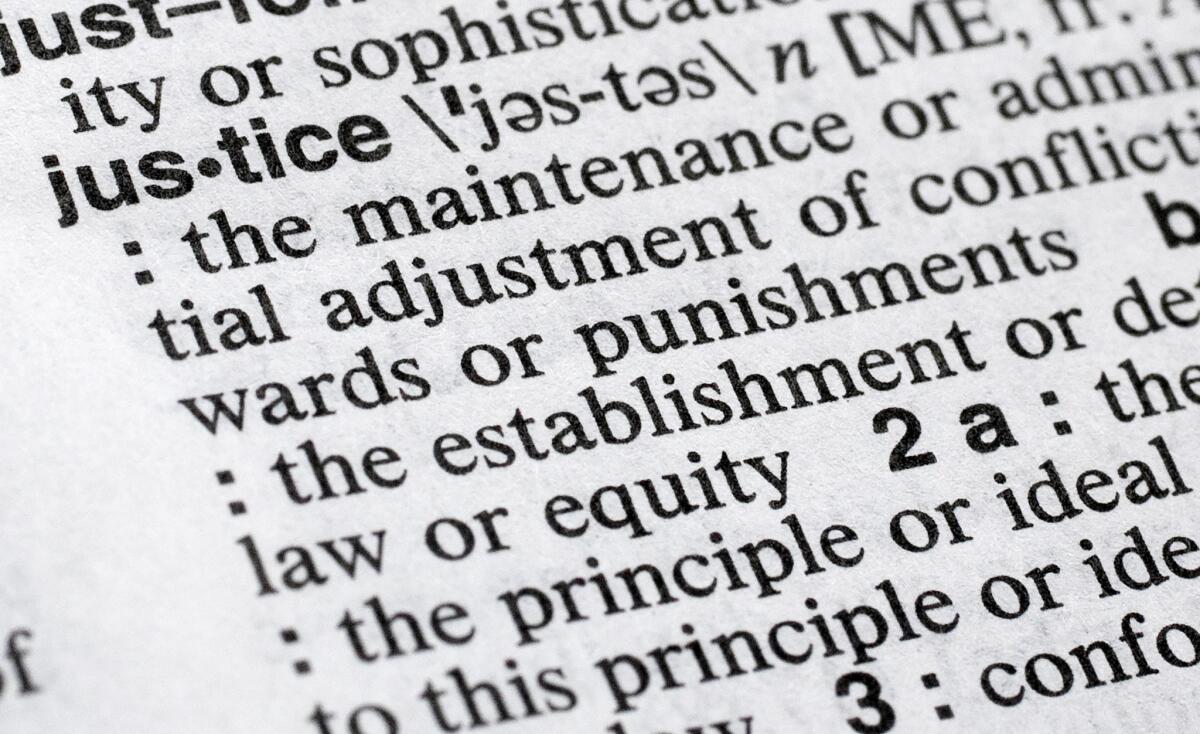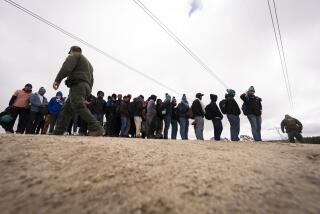How does the dictionary define racism? It’s evolving

- Share via
Merriam-Webster, the venerable dictionary publisher, announced last week that it would update its definition of the word “racism” in response to a request by a 22-year-old woman from Missouri.
But company officials hastened to say that they would do so in line with their long-standing commitment to political neutrality and to the “real-world usage of a word,” rather than trying to “promote any particular viewpoint.” In other words, there would be no slant, no bias, no subtle editorializing in the revised definition.
That’s what Merriam-Webster is trying for with all the words in its dictionary. But it’s not always easy. Going back centuries, there have been disputes about bias in dictionary definitions. And in today’s politicized world — where the recent trending words in Merriam-Webster online searches have included “fascism,” “antifa,” “loot,” “defund,” “no quarter,” “white supremacist,” “curfew” and “anarchy” — how could the company not feel battered, like the rest of us, by the bitter differences of opinion that divide the country?
“People with a political ax to grind try to use the Bible and the Constitution as cudgels to prove their points — and, well, they use the dictionary that way, too,” says Peter Sokolowski, an editor at large at Merriam-Webster. “But I think our credibility depends on this idea of our remaining a neutral, objective arbiter of meaning. That is the role of the dictionary.”
Most of us, I suspect, don’t want our dictionaries telling us what to think. And that’s been known to happen in the world. In the 1980s, for instance, one dictionary in the Soviet Union defined the phrase “Cold War” as “The hostile and aggressive policy of the reactionary circles of the imperialist powers towards the USSR and other socialist countries.” Surely, we don’t want that in our dictionaries, do we?
These days, there are about 25 editors at Merriam-Webster working under the “director of defining,” fighting for the best possible definitions, but also for impartial, objective ones.
Over the decades, they’ve debated many words, including “marriage.” Sokolowski says that marriage used to be defined as a union between a husband and a wife. But the world changed and the word changed, and a second definition was added that allowed for the existence of “same-sex” marriages that were “similar” to those between a husband and wife. Then in 2017, the definition was revised again to make the entire definition non-gender specific: “The state of being united as spouses in a consensual and contractual relationship recognized by law.”
The goal of the revision was not to signal approval of gay marriage, or to tell people how the word marriage should be used, but to reflect how the word is used.
Here are some other words that have required discussion: The term “Eskimo” is now marked (since 2018) as “sometimes offensive” by Merriam-Webster. There have been debates among lexicographers over how to define “anti-Semitism” and “the Holocaust.” Gun rights supporters have clashed with gun control advocates over how “assault weapon” should be defined. Advocates have debated whether drug addiction should be explained in terms of criminality or as a health issue.
Now, the definition of “racism” is being changed at Merriam-Webster because 22-year-old Kennedy Mitchum wrote in and complained that people were denying the existence of systemic racism — and pointing to the dictionary definition as supposed proof. She urged the company to add a reference to systemic racism. She heard back within a day. A revision is forthcoming.
The dictionary business is very different today than it was in the days of Samuel Johnson or Noah Webster. Definitions no longer have to be as concise, because they’re used more often today online where space is not an issue. Dictionaries are no longer revised only every decade or so — it’s an ongoing process. (Merriam-Webster gets 100 million page views per month on its website, plus 2 billion lookups each year on its app.)
The political battles, though, go way back. Kory Stamper, a lexicographer and author, has pointed on her blog to an 1866 newspaper headline: “Radicals Tampering with the School Books: Partisan Definitions in New Editions of Webster’s Dictionary.”
Unsurprisingly, some in academia argue that dictionaries cannot be made apolitical. Rosamund Moon, a research fellow in English and linguistics at the University of Birmingham, has argued that “there is no such thing as a politically neutral definition.” Some scholars say that dictionaries convey the prevailing ideology of the society whose language is recorded, or even, as one academic put it, that “any attempts to strip the dictionary of ideology and bias are themselves ideological acts.”
To me, it seems inevitable that subtle (perhaps even unconscious) political assumptions will seep into our dictionaries from time to time. Lexicographers no doubt have to constantly reexamine their own biases and review their definitions in an effort to minimize that seepage.
But it strikes me as a battle worth fighting. I found it reassuring, almost inspiring, how committed the dictionary’s editors seem to be to drawing up precise, ideology-free definitions and building a shared understanding of words.
In 1946, in the aftermath of World War II and the dropping of the atom bomb on Hiroshima and Nagasaki, George Orwell wrote that “the present political chaos is connected with the decay of language.”
If we can’t even agree on what our words mean, how can we debate? And if we can’t debate, how can we find our way through the political chaos in which we have once again found ourselves?
@Nick_Goldberg
More to Read
A cure for the common opinion
Get thought-provoking perspectives with our weekly newsletter.
You may occasionally receive promotional content from the Los Angeles Times.











